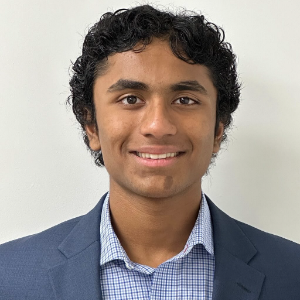Title : Novel stress detection leveraging deep learning and multi-domain features on EEG signals
Abstract:
Stress is a very special state of being in that it can influence almost every bodily function and system in the most negative way, contributing to a wide range of health issues, from psychological disorders such as depression to physiological problems like indigestion. It has been identified as a major factor in many of the leading causes of death worldwide, including cardiovascular disease and cancer. This underscores the urgent need for real-time, accurate stress detection to enable timely intervention and management. While numerous studies have attempted to address this need, they often fall short due to their reliance on subjective measures, inconsistency in results, low accuracy, and generalization issues. Furthermore, overfitting remains a common challenge in many stress detection models, limiting their effectiveness in real-world applications. This study proposes a novel stress detection method that leverages Electroencephalogram (EEG) signals as an objective measure of brain activity, paired with mental arithmetic tasks to induce measurable stress responses. The use of EEG signals addresses many of the limitations found in prior studies by providing a direct and objective metric for stress detection. To ensure the reliability of the data, extensive preprocessing techniques were employed, including advanced signal filtering, artifact removal, and data cleansing. This meticulous approach ensures that only the most relevant and high-quality data were used to train the machine learning models. Central to this study is a six-layer deep neural network (DNN) that was optimized through rigorous hyperparameter tuning and trained on a comprehensive feature set extracted from multiple domains. These domains include time-domain features such as power spectral density, frequency-domain features derived from various EEG bands, and complex non-linear features, which collectively capture the intricate dynamics of brain activity during stress with a total of 72 features. The neural network architecture also incorporates multiple techniques to prevent overfitting and optimize performance. The results demonstrate that the proposed model achieves a remarkable accuracy of 89.08%, significantly outperforming traditional machine learning models such as K-Nearest Neighbors, Support Vector Machine, Logistic Regression, and Random Forest, all of which were tested as control models in this research. These models, commonly used in past studies, have struggled with generalizability and performance when applied to complex, real-world data. The deep neural network algorithm presented in this study sets a new benchmark for stress detection, offering an innovative, non-invasive, and highly accurate method that can be effectively used in clinical settings. Furthermore, this study emphasizes the potential for practical applications of this model in real-world stress management and healthcare. By integrating EEG-based stress detection into wearable devices, individuals could receive real-time feedback on their stress levels, allowing for timely intervention and self-regulation strategies. By setting a new standard in the field, this study broadens the domain of stress research and intervention strategies, opening the door for advancements in mental health monitoring and treatment. It is a valuable tool for both clinicians and individuals seeking to manage stress effectively in their daily lives.
Audience Take Away Notes:
- Understand how real-time EEG-based stress detection can be integrated into predictive healthcare, offering potential for continuous, non-invasive stress tracking in clinical and personal health applications, along with potential integration with wearable devices and neuroadaptive feedback systems.
- Advanced EEG signal processing: Explore cutting-edge techniques in EEG signal preprocessing, including adaptive filtering, Independent Component Analysis (ICA) for artifact rejection, and wavelet-based feature extraction to isolate stress-related brainwave patterns with precision.
- ???????High-Dimensional Multi-Domain Feature Space Analysis: Learn about the integration of non-linear features, including entropy measures and fractal dimensions, alongside traditional time-frequency domain features, their correlations and importance in classifying stress through EEG signals.
- ???????Deep Neural Networks for Stress Detection: Understand six-layer deep neural network architecture and how specialized techniques along with optimization with hyperparameter tuning enhance model performance.
- ???????Model Generalization: Discover methods to enhance model generalizability, reduce overfitting, improve performance over traditional models like KNN, SVM, Random Forest.
- ???????Ablation Study Insights: Ablation studies help identify the most critical EEG frequency bands and neural network layers, providing insights into how specific data inputs contribute to model performance, leading to optimized computational efficiency.




